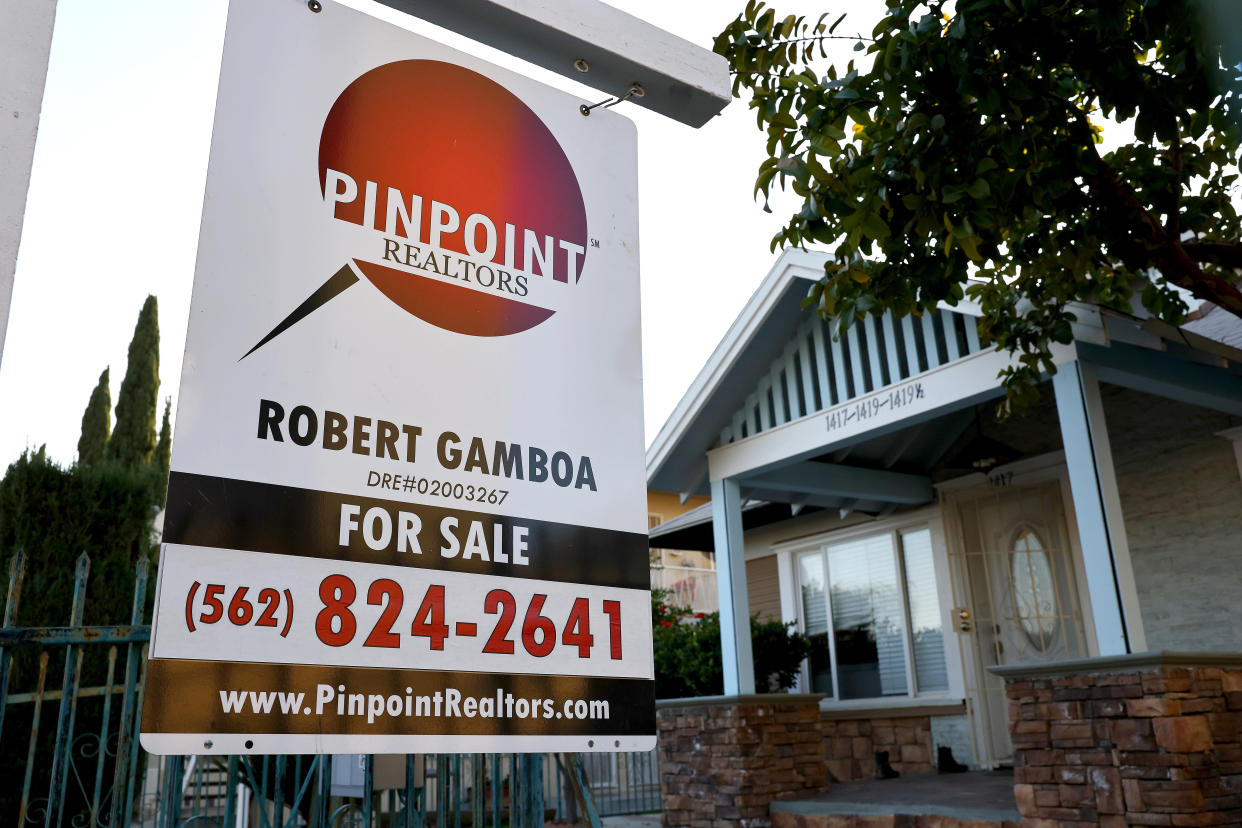Real estate investors aren't making money like they used to, study finds
Real estate investors are having a harder time in today's housing market.
About one in seven homes (13.5%) an investor sold in March went for less than what the investor bought the property for, according to realty company Redfin. While down from February's 14.5% — the highest since 2016 — it's still nearly triple the share from a year earlier.
Flippers — investors who buy a home and sell it within nine months — fared even worse. In March, 20.8% of flippers sold at a loss.
The findings underscore how the Federal Reserve's moves to curb inflation have also hit housing speculators, who, like other buyers, have to contend with volatile rates, a lack of supply, and softening prices.
“Home flippers aren’t reaping the gains they used to,” Phoenix Redfin agent Van Welborn said in the Redfin report.

'Investor ended up losing about $20,000'
The average investor who sold a home in March got 45.9%, or $145,714, more than the price they paid. That's down from the 55.3% ($173,458) gain investors got a year ago, according to the brokerage, which analyzed sales in America’s top metropolitan areas.
The $145,714 gain also doesn't necessarily translate into all profit, Redfin noted, because the figure doesn't take into account carrying costs and renovation costs that an investor must pay.
“I recently showed one of my buyers a three-bedroom single-family home in Glendale that was listed by an investor. My client ultimately found another house they liked better, and the investor ended up losing about $20,000,” Van Welborn said in the report.
“The investor bought the home for $450,000 and sold it for $480,000, but put $50,000 of work into it. The house also sold below the $550,000 list price after sitting on the market for almost four months.”
Higher rates
Rising mortgage rates have sent monthly payments to new heights, cutting into investor profits. The typical monthly payment for a home is up $300 from a year ago.
Mortgages rates have remained elevated from where they were last year. One measure by Freddie Mac showed the average rate for a fixed 30-year loan is sitting above 6%.
“You might wonder why investors don’t just wait to sell until the housing market bounces back. Many long-term investors who rent their properties out are doing that, but many flippers—especially those who bought recently—can’t afford to,” said Redfin Senior Economist Sheyaryar Bokhari.
At the same time, according to Redfin, many investors could still feel the sting even if they pay cash for a home.
“Holding onto homes that aren’t producing income can be expensive because the owner is on the hook for property taxes, along with operating costs and monthly mortgage payments in some cases. Many short-term investors are also opting to sell because they know prices may have more room to fall and want to cut their losses,” Bokhari added.
For instance, the median sales price of homes sold by investors in March fell 4.8% to $463,505 from $486,980 a year ago. The largest year-over-year declines occurred in San Francisco (down by 30%), followed by Sacramento ( down 13.6%), San Jose, California ( down 13.4%), and Oakland, California (down 13.3%).
"Overall U.S. home prices have been falling fastest in pandemic boomtowns and expensive coastal markets because prices in those areas overheated in recent years and are now coming down from unsustainable levels," the Redfin report noted.
As a result, more investors are leaving the market, likely discouraged by the numbers not pencilling out.
The volume of purchases from this group fell 45.8% on a yearly basis in the fourth quarter, a separate Redfin report found, rivaling when investor purchases slumped 45.1% during the housing bust in 2008.
The pullback in investor activity was deeper in the pandemic boomtowns of Las Vegas and Phoenix — down around 67% — more than any other metros across the country, Redfin found. That's not surprising, given investors in those cities were more likely to sell at a loss.
In Phoenix, 30.7% of homes sold by investors in March went for less than what they paid for, while 28% sold at a loss in Las Vegas, Redfin found.
—
Dani Romero is a reporter for Yahoo Finance. Follow her on Twitter @daniromerotv
Read the latest financial and business news from Yahoo Finance
Download the Yahoo Finance app for Apple or Android
Follow Yahoo Finance on Twitter, Facebook, Instagram, Flipboard, LinkedIn, and YouTube
